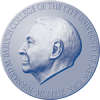-
Posts
560 -
Joined
-
Last visited
-
Days Won
3
Reputation Activity
-
 ZeChocMoose got a reaction from TheLostExploration in Graduate Committee Formation
ZeChocMoose got a reaction from TheLostExploration in Graduate Committee Formation
Have you asked older students in your program how they have approached it? Usually in my department, you submit a 5-6 page prospectus to your potential committee members and then you meet with them each individually to talk about the project and see whether they are interested in being on your committee. I am in the process of forming mine at the moment and the way that I am approaching it is to have 1-2 who are solid on the methods and 2-3 who are solid on some aspect of the content area that I am researching. (There is some overlap among the roles and everyone is familiar enough with the method.) If my research was really theory heavy, I would probably add someone who knew my theory really well but since I am doing policy research-- theory tends to not play as large of a role. I know some of my cohort mates have added people who are good at offering emotional support when things get rough. If that is important to you - that might be something you will want to think about.
But I agree that you should form a shortlist yourself and run it by your chair before you approach anyone. You want to make sure that your chair gets along with these people! You might also want to have a couple of alternatives too in case someone is not able to be your committee for various reasons. One of my cohort mates had to ask three people to secure his last committee member. And make sure you read the rules set by either your department or school so your committee will get approved.
-
 ZeChocMoose got a reaction from Demeter in Graduating Early
ZeChocMoose got a reaction from Demeter in Graduating Early
They also might be talking about international degrees because there are some countries that have standard 3-year bachelor's degrees instead of four.
-
 ZeChocMoose got a reaction from Snow21 in Worth it? Questions about an M.ed.
ZeChocMoose got a reaction from Snow21 in Worth it? Questions about an M.ed.
I agree with the other posters - you really want to work in the field for a couple years before you go back and get your MA in student affairs/higher ed. Usually, the way that programs are set up, it assumes that you have some full time experience in the field and I am not sure how much you get out of it if you don't. And similar to teaching, a lot of student affairs professionals leave the field within the first couple years on the job so you want to make sure you at least like working in an university before you invest more time and possibly money in another degree.
Since you have prior residential life experience, I would look at residence hall director jobs. I would also look at admission counselor positions because they are targeted towards people right after their bachelor's degree. Usually, it is the easiest to get a position at your alma mater or a school comparable to your alma mater.
You may also find that you don't need a master's in student affairs/higher ed to progress. The field values experience a lot and since you already have a master's - it might not be necessary depending on the school you work at.
-
 ZeChocMoose got a reaction from St Andrews Lynx in Language Differences
ZeChocMoose got a reaction from St Andrews Lynx in Language Differences
I would suggest another tactic. Instead of making a plea for these group conversations to be in English because I don't think that is going to get you what you want, I would instead try to invite a couple of your cohort mates for 1-on-1 outings to get to know them better. It could simply be coffee, drinks, lunch, attending a school event together, some hobby you know he/she likes, etc. Basically, if you can have a couple of these "dates" with at least 2-3 cohort mates, you'll get to know them better and might help ease the awkwardness in group situations. The key point though is they need to be 1-on-1 so you'll mutually get to know each other better.
Another suggestion is that you can try to start another conversation with some of your cohort mates that don't seem to be participating much in the group conversation that you can't understand. Usually when a group becomes a certain size, it's difficult for everyone to be equally engaged so find the people that don't look like they are actively participating and try to engage them in a conversation. This is much easier if you have already had 1-on-1 time with them and you know something about them. One huge caveat is sometimes this works and sometimes this is a huge bust. If I was going to try this, I would probably say something like "Hey X - did you read that y article? Wasn't it [insert some adjective]? Did you get the part about [insert something here]? What did you think about the Z part?" Target the least participatory person in the group conversation and go from there. If s/he answers back - awesome. If s/he doesn't engage - I might drop it and try another person on another day.
Good luck!
-
 ZeChocMoose got a reaction from TakeruK in Language Differences
ZeChocMoose got a reaction from TakeruK in Language Differences
I would suggest another tactic. Instead of making a plea for these group conversations to be in English because I don't think that is going to get you what you want, I would instead try to invite a couple of your cohort mates for 1-on-1 outings to get to know them better. It could simply be coffee, drinks, lunch, attending a school event together, some hobby you know he/she likes, etc. Basically, if you can have a couple of these "dates" with at least 2-3 cohort mates, you'll get to know them better and might help ease the awkwardness in group situations. The key point though is they need to be 1-on-1 so you'll mutually get to know each other better.
Another suggestion is that you can try to start another conversation with some of your cohort mates that don't seem to be participating much in the group conversation that you can't understand. Usually when a group becomes a certain size, it's difficult for everyone to be equally engaged so find the people that don't look like they are actively participating and try to engage them in a conversation. This is much easier if you have already had 1-on-1 time with them and you know something about them. One huge caveat is sometimes this works and sometimes this is a huge bust. If I was going to try this, I would probably say something like "Hey X - did you read that y article? Wasn't it [insert some adjective]? Did you get the part about [insert something here]? What did you think about the Z part?" Target the least participatory person in the group conversation and go from there. If s/he answers back - awesome. If s/he doesn't engage - I might drop it and try another person on another day.
Good luck!
-
 ZeChocMoose got a reaction from knp in Language Differences
ZeChocMoose got a reaction from knp in Language Differences
I would suggest another tactic. Instead of making a plea for these group conversations to be in English because I don't think that is going to get you what you want, I would instead try to invite a couple of your cohort mates for 1-on-1 outings to get to know them better. It could simply be coffee, drinks, lunch, attending a school event together, some hobby you know he/she likes, etc. Basically, if you can have a couple of these "dates" with at least 2-3 cohort mates, you'll get to know them better and might help ease the awkwardness in group situations. The key point though is they need to be 1-on-1 so you'll mutually get to know each other better.
Another suggestion is that you can try to start another conversation with some of your cohort mates that don't seem to be participating much in the group conversation that you can't understand. Usually when a group becomes a certain size, it's difficult for everyone to be equally engaged so find the people that don't look like they are actively participating and try to engage them in a conversation. This is much easier if you have already had 1-on-1 time with them and you know something about them. One huge caveat is sometimes this works and sometimes this is a huge bust. If I was going to try this, I would probably say something like "Hey X - did you read that y article? Wasn't it [insert some adjective]? Did you get the part about [insert something here]? What did you think about the Z part?" Target the least participatory person in the group conversation and go from there. If s/he answers back - awesome. If s/he doesn't engage - I might drop it and try another person on another day.
Good luck!
-
 ZeChocMoose got a reaction from fencergirl in Language Differences
ZeChocMoose got a reaction from fencergirl in Language Differences
I would suggest another tactic. Instead of making a plea for these group conversations to be in English because I don't think that is going to get you what you want, I would instead try to invite a couple of your cohort mates for 1-on-1 outings to get to know them better. It could simply be coffee, drinks, lunch, attending a school event together, some hobby you know he/she likes, etc. Basically, if you can have a couple of these "dates" with at least 2-3 cohort mates, you'll get to know them better and might help ease the awkwardness in group situations. The key point though is they need to be 1-on-1 so you'll mutually get to know each other better.
Another suggestion is that you can try to start another conversation with some of your cohort mates that don't seem to be participating much in the group conversation that you can't understand. Usually when a group becomes a certain size, it's difficult for everyone to be equally engaged so find the people that don't look like they are actively participating and try to engage them in a conversation. This is much easier if you have already had 1-on-1 time with them and you know something about them. One huge caveat is sometimes this works and sometimes this is a huge bust. If I was going to try this, I would probably say something like "Hey X - did you read that y article? Wasn't it [insert some adjective]? Did you get the part about [insert something here]? What did you think about the Z part?" Target the least participatory person in the group conversation and go from there. If s/he answers back - awesome. If s/he doesn't engage - I might drop it and try another person on another day.
Good luck!
-
 ZeChocMoose got a reaction from lisalisalisa in Job Conundrum
ZeChocMoose got a reaction from lisalisalisa in Job Conundrum
Right now, you have two hypotheticals that haven't come true yet and there are so many ways that this could play out so it is hard to predict what is going to happen with the information that you currently have. You may (a) get a job offer and get a grad school acceptance, (b) only get a job offer, (c) only get a grad school acceptance, or (d) get neither in the next couple of months. Personally, I would keep on applying for jobs and putting in grad applications and see how this plays out.
In my experience, some fields take a long time to hire so you could know about your grad school acceptances before you get any job offers. You may also get grad school acceptances, but decide not to attend because you didn't like the program when you visited or the financially aid package was weak.
To answer your question - usually in entry-level, office type jobs (assuming that is the type you are applying to) they assume you are going to stay for at least a year because the time it takes to train and get a person up to speed takes a while. Usually, a good rule of thumb is it takes a person about a year to really understand their job for entry-level positions and longer if your job is more complicated and has more responsibility/autonomy. I personally wouldn't take a full-time permanent entry-level job if I knew before hand that I had to leave in 5 months. If I wasn't sure about my grad school decision yet -- you just have to make the best decision with the info that you have and be prepared to deal with the fall out if your work does take it badly.
What you could do instead if you do know that you'll be headed off to grad school in a couple months is to apply to temp jobs. There is no assumption that you are going to stay for long term and it allows you to make decent money. I did this for 4 months after I graduated from my bachelor's and before my full-time position was available in October. I worked as a research assistant in a hospital and it worked out really great as the PI was only looking for a short-term person. You could also apply to either retail or food service positions as there are much more turn over in those fields, there is not generally the assumption that entry-level people stay very long term, and it will allow you to make some money.
Please note that all this advice is under the assumption that you don't need the money from the job to survive. If you do need the money to put a roof over your head and to eat since you are not being financially supported by family/partner/friends, my advice would be to take the job as basic survival is more important than professional concerns about leaving a job too early.
-
 ZeChocMoose got a reaction from rising_star in How to start a "bye-bye" conversation with PI who didn't get a tenure?
ZeChocMoose got a reaction from rising_star in How to start a "bye-bye" conversation with PI who didn't get a tenure?
I agree with your dept chair -- you should really switch. Do you want to work for the professor that the dept chair suggested? If so - I would meet with that person and get it sorted out. Once that is done, I would meet with your PI and tell her that you are leaving the lab. I honestly can't think of a good reason for you to stay. Your PI, even if she does get an extension, will have no power in the dept and probably is not going to be a great resource for you on the market as people will know that she has been denied tenure. You don't want to be affiliated with that as people are going to assume you won't be able to hack it either. It sucks and it is harsh - but protect yourself. I would just tell her straight forwardly and professionally that you have thought about it, but you have decided to leave the lab. I really don't think you need to go into all the reasons as that might be awkward and uncomfortable. I would then switch to talking about when is your last day and how she wants you to handle the transition of the projects i.e. who to give them to and how she wants you to document their current status.
Your PI unfortunately seems in denial about the whole thing which I am sure is awful and horrible and throwing her life into chaos -- but that is not for you to solve or even really deal with. I would believe your dept chair that she is not getting an extension. I won't believe her when she says that your current unfinished projects are only going to take a year to publish. Unless your review process is super speedy, this seems really, really unlikely especially since it sounds like she hasn't had much success with getting articles published and neither one of them are complete.
My advice is to mitigate this fall out by getting out asap and joining a lab that has a successful track record.
-
 ZeChocMoose got a reaction from MathCat in How to start a "bye-bye" conversation with PI who didn't get a tenure?
ZeChocMoose got a reaction from MathCat in How to start a "bye-bye" conversation with PI who didn't get a tenure?
I agree with your dept chair -- you should really switch. Do you want to work for the professor that the dept chair suggested? If so - I would meet with that person and get it sorted out. Once that is done, I would meet with your PI and tell her that you are leaving the lab. I honestly can't think of a good reason for you to stay. Your PI, even if she does get an extension, will have no power in the dept and probably is not going to be a great resource for you on the market as people will know that she has been denied tenure. You don't want to be affiliated with that as people are going to assume you won't be able to hack it either. It sucks and it is harsh - but protect yourself. I would just tell her straight forwardly and professionally that you have thought about it, but you have decided to leave the lab. I really don't think you need to go into all the reasons as that might be awkward and uncomfortable. I would then switch to talking about when is your last day and how she wants you to handle the transition of the projects i.e. who to give them to and how she wants you to document their current status.
Your PI unfortunately seems in denial about the whole thing which I am sure is awful and horrible and throwing her life into chaos -- but that is not for you to solve or even really deal with. I would believe your dept chair that she is not getting an extension. I won't believe her when she says that your current unfinished projects are only going to take a year to publish. Unless your review process is super speedy, this seems really, really unlikely especially since it sounds like she hasn't had much success with getting articles published and neither one of them are complete.
My advice is to mitigate this fall out by getting out asap and joining a lab that has a successful track record.
-
 ZeChocMoose got a reaction from Snow21 in Student Affairs Masters Dilemma...
ZeChocMoose got a reaction from Snow21 in Student Affairs Masters Dilemma...
I am sorry to hear that you weren't successful in this round of applications.
Based on your school selection, you are applying to a broad range of programs. What do you want to learn about in your program? As higher ed and student affairs programs can be very different from each other, it is helpful to get a general sense of your overarching interests. Do you want to learn about: Student development and counseling? Administration and leadership? Education policy and research?
How are you selecting the schools that you are interested in? I agree that you should look at cost and availability of assistantships, but you also need to evaluate programs by their fit. Some programs are very practitioner's focused, some are very research focused, and the rest are a blend of those two. Do you plan to pursue a PhD in the field? If you do, you might want to evaluate programs differently depending on whether this master's is a terminal degree for you or not. Looking at your school choices, you seem all over the map in terms of program fit.
Once you know what type of program that you are interested in, you can draw up a list and start contacting current students and faculty. They can give you a better sense of what weights they put on the individual pieces of your application. When you said you did mediocre on your GREs, I am not quite sure what score that translates into. Some programs might have minimums for their GREs and undergraduate GPAs. You need to make sure that you meet those otherwise I would advise you to take the GRE again.
This is good that you have experience. How are you talking about this in your SOP? How are you highlighting this on your resume (assuming the program requires one when you apply)? When you say "TONS," do you mean several years -or- are you talking about while as an undergraduate student? Which is fine (by the way), but you should know that you will be in an application pool with master's applicants that have 1 - 5 years of professional experience.
These programs are all well known to pretty well known for the field of higher ed/student affairs. You might be in fierce competition again. How did you pick them? Are there professors you want to work with there?
It seems like I may be a bringer of bad tidings- but I think the take away from my post would be to narrow your focus and decide what type of program that you would like to pursue. I also would talk to student affairs professionals on your undergraduate campus. They may have some great recommendations.
One creative solution I have seen when the applicant didn't have stellar academic credentials is that person took several classes as a non-degree seeking student in the program and did well in the courses. He was able to get to know the faculty and establish himself as a known entity. This was very helpful when he applied and helped mitigate academic concerns. Of course this requires you to be in commuting distance of a program that you are interested in which might not be possible.
I am sorry that I don't have any program recommendations. The programs that I know that are not competitive are not academically rigorous so I would not want to recommend them. (In the long run) the better advice would be to tell you to retool your SOP and resume and talk to the current students and faculty than to look for programs that are not competitive.
-
 ZeChocMoose got a reaction from Snow21 in Advice and Wisdom from Master's graduates
ZeChocMoose got a reaction from Snow21 in Advice and Wisdom from Master's graduates
Since a lot of master's programs are classes - use your electives wisely. Don't be afraid to take classes outside of your department or the school of education! In my master's program, I took a PhD-level course in Cognitive Science and it was pretty awesome. So explore!
To maximize your chance to be employable after graduation, don't just do classes. Get an assistantship, internship, teaching, or research position. As education tends to value experience a lot, you want to make sure that you are securing positions that are similar to what you want to do after you graduate. I had a 2 year assistantship and two semester long graduate internships. While I was extremely busy, it helped me to narrow down what I wanted to do after graduation and gave me the necessary experience to secure a job relatively quickly.
Make friends with your cohort mates. These people will be the start of your professional network when you graduate and can be extremely helpful to you in the future. Also -- it makes the program much more enjoyable to have people to study with and commiserate with when times are tough in the semester. Also --utilize the older students in the program. Ask for course recommendations and good places to do internships/assistantships.
And if you are all interested in going on to your PhD -- make sure you have a good relationship with at least one ideally two professors in your program. And try to get involved in research during your master's. It will give you some good insight on whether the PhD makes sense for you in the future. Particularly helpful if you are not sure whether you want to go on or not.
-
 ZeChocMoose got a reaction from EdNeuroGrl in Ph.D Programs in Higher Ed & Concerns
ZeChocMoose got a reaction from EdNeuroGrl in Ph.D Programs in Higher Ed & Concerns
Higher Ed is one of those disciplines where a lot of schools have departments (I imagine) because there is a demand from students and they are relatively cheap to run compared to other programs in the academy i.e. engineering and other STEM disciplines. It does mean that there tends to be a huge range of quality among the programs.
You mention that you want to be a higher ed administrator, but that is a pretty vague job title that can encompass a lot of different areas. Which specific area do you want to go into (e.g. student activities, academic affairs, admissions, residential life, institutional research, etc.)? Usually to become an administrator you don't need a PhD - just a master's degree and relevant experience. You may need a PhD eventually if you are looking to be the director of an office or a vice president level administrator especially at large research intensive universities, but you are not going to jump out of a PhD program and into one of those positions unless you came in with pretty substantial amount of experience before the PhD.
To get into a competitive PhD program in higher ed - you'll typically need a master's degree and a good 3-5 years of experience at least somewhat related to education. Do you have this? If not, it would be better for you to look at master's programs.
To answer your question about employability -- I am currently in a well regarded Higher Ed PhD program. As far as I have seen (being here 4+ years now), PhD students that want to go the administration route do well on the job market. In fact, some decide to leave after they reach candidacy and finish their dissertations from afar because they either get recruited by different organizations or because a dream position opens up and they just can't pass it up. We do tend to have small cohorts (8 - 10 people) and PhD students come in with good amount of higher ed experience. If you decide to go to a non-selective Higher Ed PhD program -- I am not sure how well they do on the job market especially if their experience is weak to begin with.
-
 ZeChocMoose got a reaction from so_it_goes in Ph.D Programs in Higher Ed & Concerns
ZeChocMoose got a reaction from so_it_goes in Ph.D Programs in Higher Ed & Concerns
Higher Ed is one of those disciplines where a lot of schools have departments (I imagine) because there is a demand from students and they are relatively cheap to run compared to other programs in the academy i.e. engineering and other STEM disciplines. It does mean that there tends to be a huge range of quality among the programs.
You mention that you want to be a higher ed administrator, but that is a pretty vague job title that can encompass a lot of different areas. Which specific area do you want to go into (e.g. student activities, academic affairs, admissions, residential life, institutional research, etc.)? Usually to become an administrator you don't need a PhD - just a master's degree and relevant experience. You may need a PhD eventually if you are looking to be the director of an office or a vice president level administrator especially at large research intensive universities, but you are not going to jump out of a PhD program and into one of those positions unless you came in with pretty substantial amount of experience before the PhD.
To get into a competitive PhD program in higher ed - you'll typically need a master's degree and a good 3-5 years of experience at least somewhat related to education. Do you have this? If not, it would be better for you to look at master's programs.
To answer your question about employability -- I am currently in a well regarded Higher Ed PhD program. As far as I have seen (being here 4+ years now), PhD students that want to go the administration route do well on the job market. In fact, some decide to leave after they reach candidacy and finish their dissertations from afar because they either get recruited by different organizations or because a dream position opens up and they just can't pass it up. We do tend to have small cohorts (8 - 10 people) and PhD students come in with good amount of higher ed experience. If you decide to go to a non-selective Higher Ed PhD program -- I am not sure how well they do on the job market especially if their experience is weak to begin with.
-
 ZeChocMoose got a reaction from hesadork in Fall 2016 Applicants
ZeChocMoose got a reaction from hesadork in Fall 2016 Applicants
Actually, higher ed is one of those great fields where there are a good number of quality programs that fully funded their master's students by offering them assistantships. These assistantships* are (usually) part-time staff member positions in an office on campus. A good assistantship offers you tuition remission, guaranteed salary, and healthcare. It is been over 10 years (!) since I applied to master's programs, but when I was going through the process the places that fully funded their master's students were: University of Connecticut, University of Vermont, Ohio State, University of Maryland, Bowling Green, Penn State, and Michigan State. And I am sure a bunch others -- I was only looking at East coast and Midwest schools at the time.
*It gets a little bit confusing because some programs call a part-time job on campus - an "assistantship" when they are not offering any of the benefits of an assistantship i.e. no tuition remission, healthcare, or guaranteed salary. Instead, I like to think of these part-time jobs as paid "internships" because they only offer an hourly wage that can range a fair amount depending on the job. So you will get the experience which is great, but you won't get the great financial benefits of a true assistantship which is unfortunate.
NASPA (an organization for student affairs professionals if you are not familiar) has a search feature on their website: http://apps.naspa.org/gradprograms/search.cfm that you can click off master's program and "assistantships" under the financial aid options and it will give you a list of programs that meet your criteria. That being said some programs say they have an "assistantship," but it is more of an internship (as mentioned above) so you'll want to independently verify the ones that are listed to make sure they are true assistantships.
I think there are a lot of different pathways you can take to make you a competitive applicant. In terms of picking a good master's higher ed program that will prepare you -- I always like to first look at the curriculum to make sure you are at least being introduced to statistics and research methods. Since PhD programs are all about the research, in your master's program -- you'll want to take ideally three classes: a class on statistics, a class on research design, and class on qualitative methods.
You'll also want to know what is the culminating experience of the program. Is it a comprehensive exam, a capstone paper, or a thesis? Or is there no culminating experience? Just classes, internship component, and you are done. A comprehensive exam and/or a thesis/capstone paper are more aligned with what you'll do in a PhD program so you might want to lean towards those programs instead of just straight classes programs.
Also -- since you know which area you want to study, go to programs where the faculty study the topics that you are interested in and try to get involved in research with them. Some programs make it harder than others for their master's students to get involved in research -- but you can always reach out to current master's students and ask.
Since SHIP is your dream school -- see if they have profiles of their PhD students so you can take a look at where these students did their master's. I know in my program, we have some limited profiles of PhD students who chose to have their information displayed so prospective students can reach out to them. If SHIP doesn't have profiles, you could also search LinkedIn for SHIP PhDs and read their pages to get a sense of their experience and where they went for their master's degree. Also, you could always contact SHIP and ask what makes a competitive PhD applicant to their program and see what their recommendations are for good higher ed master's programs.
Good luck!
-
 ZeChocMoose got a reaction from TakeruK in Your 30-second pitch!
ZeChocMoose got a reaction from TakeruK in Your 30-second pitch!
Great topic!
My 30 second pitch is:
I study higher education policies mainly focusing on college affordability and early college programs in high school. I evaluate these types of policies to determine what is the impact of the policy on specific outcomes - usually college attendance and/or college completion and I also look at whether the policies/program are a good use of limited governmental resources.
And because I was curious, I timed my pitch - 24 seconds - not bad if I do say so myself
-
 ZeChocMoose reacted to fuzzylogician in Your 30-second pitch!
ZeChocMoose reacted to fuzzylogician in Your 30-second pitch!
Following up on an idea from another recent thread, I am curious to know more about everyone's "30-second" pitch. What is it that you do, condensed down to 2-3 sentences, delivered in ~30 seconds? This would be what you might tell a Dean at a job interview or your friends with non-academic jobs at a party. I'm sure there is a lot of interesting research being done by the members of this board! Mine:
I study how our language faculty is organized, and more specifically how the structure of sentences we say maps onto their meaning. I work under the very general assumption that some characteristics of Language are shared across all languages while some other aspects need to be acquired when we are children, and I am interested in those parts that are shared: What is the underlying system that allows children to acquire their native language so quickly and efficiently, in a way that adults studying a language later in life very rarely do?
-
 ZeChocMoose got a reaction from rising_star in Experience with Dissertation Writing Groups
ZeChocMoose got a reaction from rising_star in Experience with Dissertation Writing Groups
Thanks all for your comments and suggestions! I really thought a lot about what you all said, what I wanted to be the goals of the group, and whether I still wanted to propose such a group. In the end, I decided on an modified version of what I was thinking about originally and I put in some very minimum guidelines in my initial invitation email (attendance, amount of work expected) with the hope that people who didn't feel like they can meet the minimum requirements will decide not to join. I also just proposed it for the summer so if it is not working out it can be easily dissolved. Hopefully, it will be a productive experience!
-
 ZeChocMoose got a reaction from higheredhopeful in Advice and Wisdom from Master's graduates
ZeChocMoose got a reaction from higheredhopeful in Advice and Wisdom from Master's graduates
Since a lot of master's programs are classes - use your electives wisely. Don't be afraid to take classes outside of your department or the school of education! In my master's program, I took a PhD-level course in Cognitive Science and it was pretty awesome. So explore!
To maximize your chance to be employable after graduation, don't just do classes. Get an assistantship, internship, teaching, or research position. As education tends to value experience a lot, you want to make sure that you are securing positions that are similar to what you want to do after you graduate. I had a 2 year assistantship and two semester long graduate internships. While I was extremely busy, it helped me to narrow down what I wanted to do after graduation and gave me the necessary experience to secure a job relatively quickly.
Make friends with your cohort mates. These people will be the start of your professional network when you graduate and can be extremely helpful to you in the future. Also -- it makes the program much more enjoyable to have people to study with and commiserate with when times are tough in the semester. Also --utilize the older students in the program. Ask for course recommendations and good places to do internships/assistantships.
And if you are all interested in going on to your PhD -- make sure you have a good relationship with at least one ideally two professors in your program. And try to get involved in research during your master's. It will give you some good insight on whether the PhD makes sense for you in the future. Particularly helpful if you are not sure whether you want to go on or not.
-
 ZeChocMoose reacted to fuzzylogician in Professor sent me a thank you letter?
ZeChocMoose reacted to fuzzylogician in Professor sent me a thank you letter?
I would just completely ignore that part of her message. I'd just say "Thank you for writing, I enjoyed our meeting a lot and I am looking forward to the opportunity of talking to you more once school starts in the fall." You don't have to make decisions about your rotations just yet and it's possible that you'll change your mind once the school year starts, so why say anything? Keep it short and positive.
-
 ZeChocMoose reacted to rising_star in Pissing off a prof with my Grad School Decision??
ZeChocMoose reacted to rising_star in Pissing off a prof with my Grad School Decision??
Delete the first three sentences in that email before you send it.
Prof X isn't angry, just trying to recruit you into their grad program still. You didn't piss them off.
-
 ZeChocMoose got a reaction from hesadork in Master's admits - where are you going?
ZeChocMoose got a reaction from hesadork in Master's admits - where are you going?
Congrats, JBums! Glad to hear that this cycle worked out for you.
-
 ZeChocMoose got a reaction from higheredhopeful in Fall 2016 Applicants
ZeChocMoose got a reaction from higheredhopeful in Fall 2016 Applicants
Actually, higher ed is one of those great fields where there are a good number of quality programs that fully funded their master's students by offering them assistantships. These assistantships* are (usually) part-time staff member positions in an office on campus. A good assistantship offers you tuition remission, guaranteed salary, and healthcare. It is been over 10 years (!) since I applied to master's programs, but when I was going through the process the places that fully funded their master's students were: University of Connecticut, University of Vermont, Ohio State, University of Maryland, Bowling Green, Penn State, and Michigan State. And I am sure a bunch others -- I was only looking at East coast and Midwest schools at the time.
*It gets a little bit confusing because some programs call a part-time job on campus - an "assistantship" when they are not offering any of the benefits of an assistantship i.e. no tuition remission, healthcare, or guaranteed salary. Instead, I like to think of these part-time jobs as paid "internships" because they only offer an hourly wage that can range a fair amount depending on the job. So you will get the experience which is great, but you won't get the great financial benefits of a true assistantship which is unfortunate.
NASPA (an organization for student affairs professionals if you are not familiar) has a search feature on their website: http://apps.naspa.org/gradprograms/search.cfm that you can click off master's program and "assistantships" under the financial aid options and it will give you a list of programs that meet your criteria. That being said some programs say they have an "assistantship," but it is more of an internship (as mentioned above) so you'll want to independently verify the ones that are listed to make sure they are true assistantships.
I think there are a lot of different pathways you can take to make you a competitive applicant. In terms of picking a good master's higher ed program that will prepare you -- I always like to first look at the curriculum to make sure you are at least being introduced to statistics and research methods. Since PhD programs are all about the research, in your master's program -- you'll want to take ideally three classes: a class on statistics, a class on research design, and class on qualitative methods.
You'll also want to know what is the culminating experience of the program. Is it a comprehensive exam, a capstone paper, or a thesis? Or is there no culminating experience? Just classes, internship component, and you are done. A comprehensive exam and/or a thesis/capstone paper are more aligned with what you'll do in a PhD program so you might want to lean towards those programs instead of just straight classes programs.
Also -- since you know which area you want to study, go to programs where the faculty study the topics that you are interested in and try to get involved in research with them. Some programs make it harder than others for their master's students to get involved in research -- but you can always reach out to current master's students and ask.
Since SHIP is your dream school -- see if they have profiles of their PhD students so you can take a look at where these students did their master's. I know in my program, we have some limited profiles of PhD students who chose to have their information displayed so prospective students can reach out to them. If SHIP doesn't have profiles, you could also search LinkedIn for SHIP PhDs and read their pages to get a sense of their experience and where they went for their master's degree. Also, you could always contact SHIP and ask what makes a competitive PhD applicant to their program and see what their recommendations are for good higher ed master's programs.
Good luck!
-
 ZeChocMoose got a reaction from mrsmithut in Fall 2016 Applicants
ZeChocMoose got a reaction from mrsmithut in Fall 2016 Applicants
In my program - a top 10 PhD program in Higher Ed -- it is not technically necessary to do a master's before the PhD - it is just that people who haven't done a master's don't tend to be that competitive in the application pool. I sat on the admissions committee this year - and the people that didn't have master's that applied for the PhD got referred to the Master's admissions pool. We do have a couple students in the program currently that didn't do a master's before the PhD, but they had a lot of research experience (2+ years) in higher ed with known higher ed scholars during college. So it is definitely possible - but I would say difficult if you are looking to enroll in a selective program.
The two typically pathways* that you will see for higher ed PhD students: (1) work - master's - work - PhD or (2) work - master's - PhD. There are some variations, of course, but this is generally the two trajectories.
*You need to realize that higher ed PhD students tend to be older (late 20s - early 40s) than the typical social science PhD students and definitely science PhD students. Science PhD students don't tend to do master's degrees unless their credentials are not strong enough to do the PhD right away - this is not the case for most competitive higher education programs especially since there is no undergraduate degrees in higher ed.
This assumes you want to do a selective higher ed PhD. There are a bunch of non-selective programs that you would definitely be able to get in w/o a master's.
-
 ZeChocMoose got a reaction from EdNeuroGrl in Fall 2016 Applicants
ZeChocMoose got a reaction from EdNeuroGrl in Fall 2016 Applicants
In my program - a top 10 PhD program in Higher Ed -- it is not technically necessary to do a master's before the PhD - it is just that people who haven't done a master's don't tend to be that competitive in the application pool. I sat on the admissions committee this year - and the people that didn't have master's that applied for the PhD got referred to the Master's admissions pool. We do have a couple students in the program currently that didn't do a master's before the PhD, but they had a lot of research experience (2+ years) in higher ed with known higher ed scholars during college. So it is definitely possible - but I would say difficult if you are looking to enroll in a selective program.
The two typically pathways* that you will see for higher ed PhD students: (1) work - master's - work - PhD or (2) work - master's - PhD. There are some variations, of course, but this is generally the two trajectories.
*You need to realize that higher ed PhD students tend to be older (late 20s - early 40s) than the typical social science PhD students and definitely science PhD students. Science PhD students don't tend to do master's degrees unless their credentials are not strong enough to do the PhD right away - this is not the case for most competitive higher education programs especially since there is no undergraduate degrees in higher ed.
This assumes you want to do a selective higher ed PhD. There are a bunch of non-selective programs that you would definitely be able to get in w/o a master's.













